Georgia's business owners split on whether reopening is worth the risk
Owners decide whether getting back to work is worth the danger of COVID-19.
For Roasters, a neighborhood restaurant in Atlanta, preparations for the lunch rush started exceptionally early on Monday morning.
Steven Leslie prepared to welcome back dine-in customers for the first time in six weeks, but not without new precautions.
“We’re putting our host out front to kind of keep people distancing,” Leslie told “Nightline.” “We're gonna have gloves, plastic silverware.”
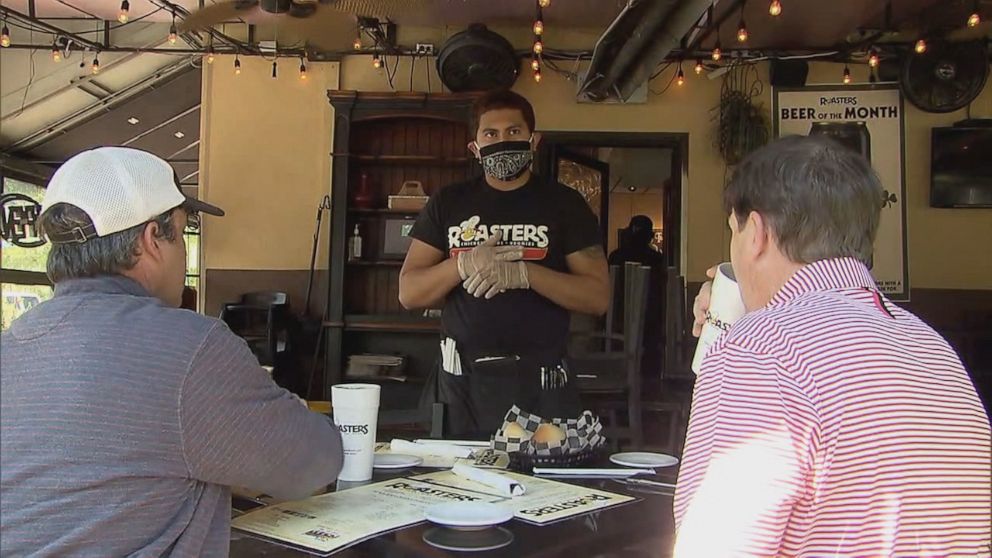
By staging tables 6 feet apart, Roasters has reduced its indoor seating by 75%. The restaurant also sanitized everything, from top to bottom, to ensure its patrons and staff feel safe.
“I’m kind of excited because they are my family,” Leslie said of the staff. “These guys need work. They need to make money.”
As Georgia eases restrictions, business owners are faced with the difficult decision of whether or not to reopen.
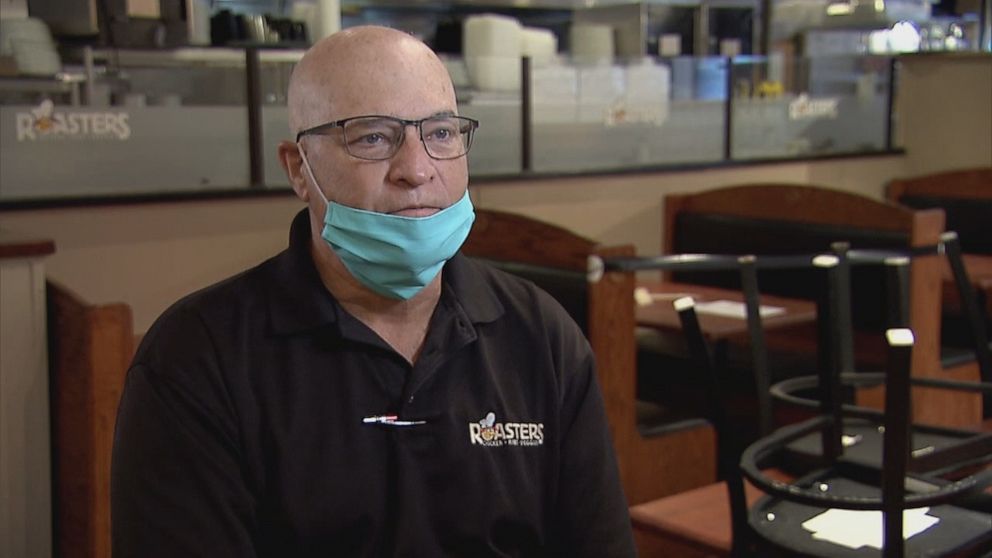
Last week, gyms, beauty shops and bowling alleys, among other businesses, were given the green light to open their doors. Some restaurants are following suit with limited dine-in service.
The controversial move made by Georgia Gov. Brian Kemp sparked criticism, with some questioning whether it’s too soon. Kemp has pointed to a decreasing number of COVID-19 cases, declining emergency room visits and enhanced testing in the state as the reason for moving forward with easing restrictions — although at least one model predicts the state of Georgia has not yet hit its peak.
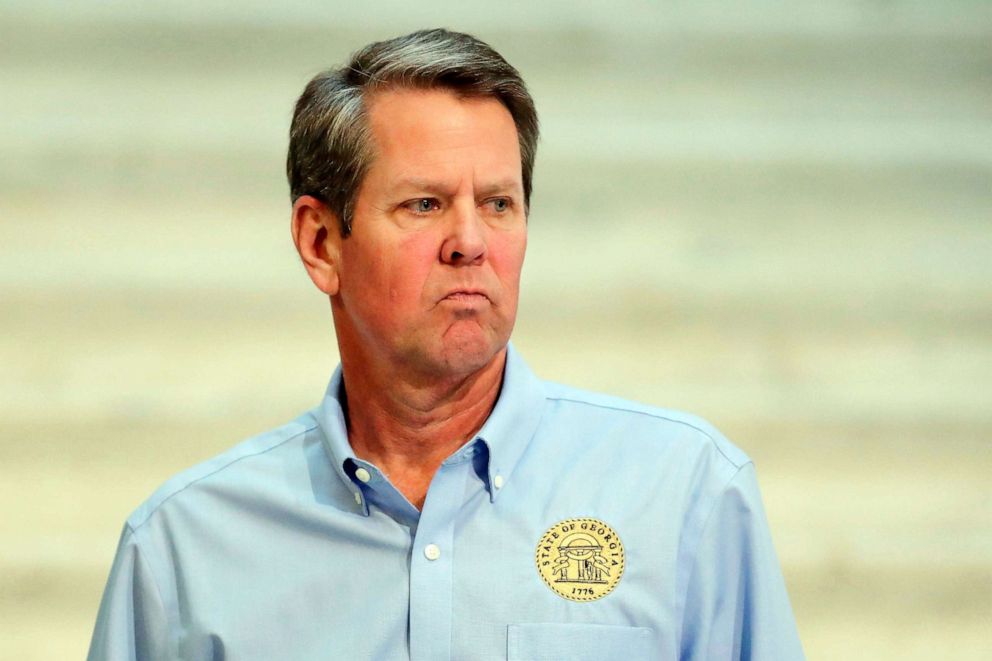
As the state weighs the economic damage of stay-at-home orders against public safety, other states are now looking to see whether Georgia serves as a roadmap or a cautionary tale. At least 26 million Americans have filed for unemployment and at least a dozen states are easing restrictions, including Colorado and Ohio. It’s a risk some governors in states like Michigan and New York won’t take.
With the U.S. death toll from COVID-19 now surpassing 56,000, some are wondering: At what cost?
For Regina Hirschell, reopening day at her Atlanta hair salon was one of both excitement and uncertainty.
“If we don't work, we'll be homeless or hungry... So we got to take this risk,” she told “Nightline.”
Hirschell said she’s never been forced to close her business, and worried whether her customers would return.
“The first day that I opened I was very nervous, but my customers made me feel safe and I'd make them feel safe as well. So that's easier as the day went on,” she said.
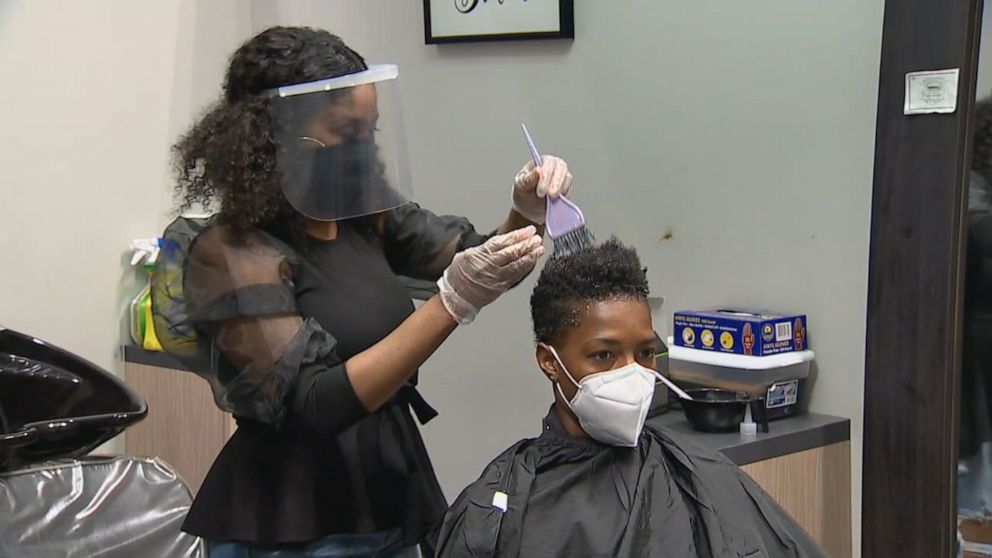
She said the decision to reopen was less a choice than it was a necessity.
“I went through pretty much all of my savings account,” she said. “I was devastated because I'm like, now everything had to shift for me.”
It’s not quite business as usual. Appointments now come with rubber gloves, face shields and temperature checks. Hirschell has implemented a hard "one in, one out" policy and is making high-risk clients stay home.
“I don't want nobody to get sick just to get their hair done,” she said. “I'm telling [at-risk clients] to stay away for their own sake because it may not even be in a salon. They might contract it coming to the salon. So I don't want them to take their risk ... to get their hair done.”
She also said she's not worried about backlash for reopening.
"I had some people contact me on social media, and they were very negative so, what I did, I just blocked it out," Hirschell said.
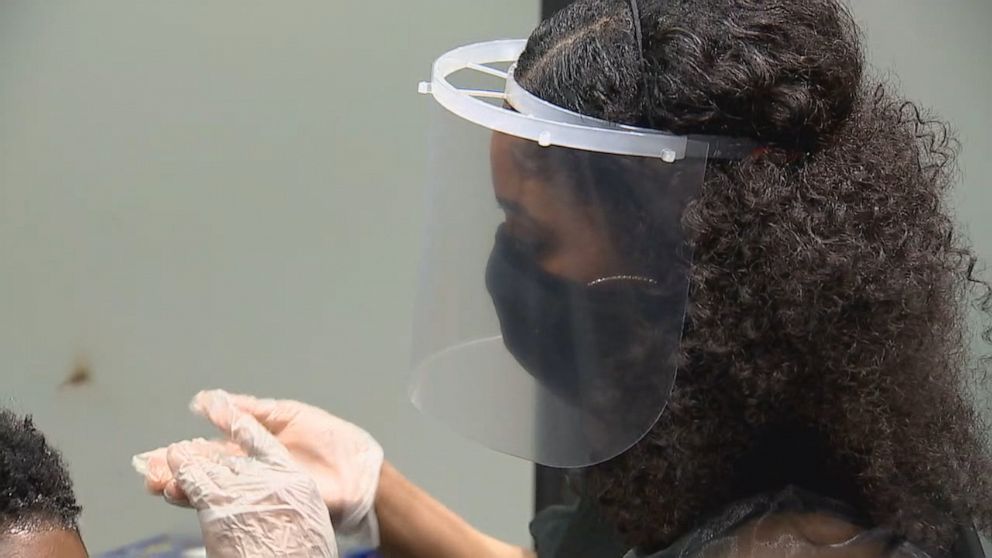
Hours south in Albany, Georgia, there is still much trepidation in a town deeply affected by COVID-19.
Andrea Owens-White has been a florist there for 33 years, and it's a job that has rooted her in the community. Weddings, babies and funerals. She’s been there for it all, but has chosen to keep her doors closed for now.
“My business has tremendously received the decrease because the graduations that I was scheduled to decorate were canceled,” Owens-White told “Nightline.” “I had proms that were canceled, Easter [events] set up that were canceled. It has just dampened our whole community.”
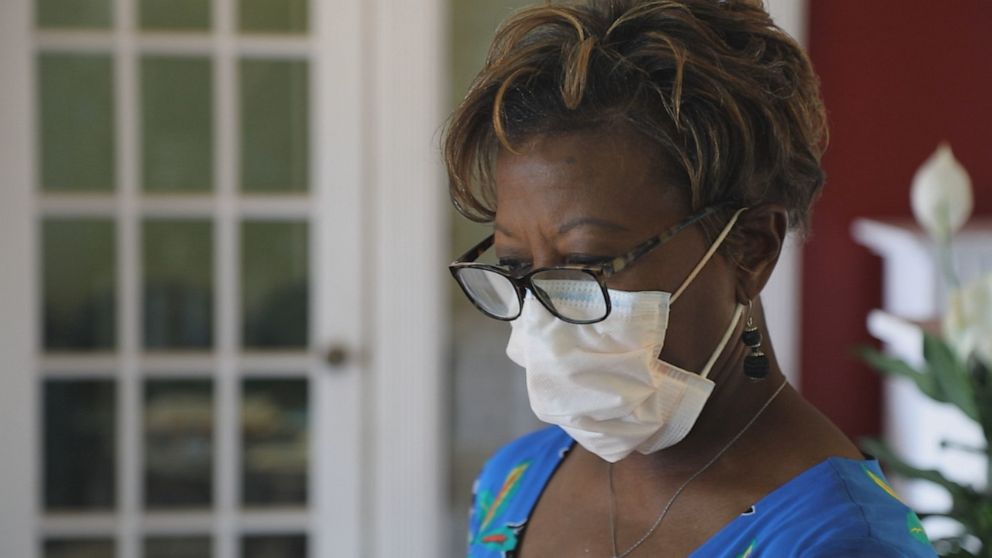
For Owens-White, COVID-19 hit home. She said her husband, a pastor, attended the funeral of a member of their church in February and contracted the virus.
“He spread it to myself and my 92-year-old mother," she said. "She was in [the intensive care unit] for about five days."
Owens-White and her family have now recovered, but she says that without a cure or wider testing, her shop will stay closed.
“I have applied for unemployment with no response. I have applied for the PPP loan. Still with no response,” she said. “I am very concerned if this goes on, there is a possibility that I not only lose my business, I could lose my home — everything.”
"I am remaining closed for the protection of myself, my family and those I care about," Owens-White added.
The state of Georgia is feeling the painful ripple effects of the stay-at-home order. Over the last month, 1.1 million Georgians have filed for unemployment.
Public policy analyst George Chidi says that rushing to reopen this will actually hurt hard-working Americans.
“I think you need to consider who’s actually going to be working these jobs... We’re not talking about six-figure salary jobs. We’re talking about the working class of Georgia,” Chidi said. “The idea we can put them at risk because we fear what’s going to happen to government revenue is a disgrace. Those lives matter.”
Chidi said it's far more than a public health hazard and believes Kemp “has made a mistake.”
“I don’t think we should be reopening the economy yet,” he added. “I think it’s going to cost more lives than it saves."
It seems as though a majority of Americans agree it's too soon to reopen. An ABC News/Ipsos poll shows that 72% of Americans believe that moving too quickly to loosen stay-at-home orders is a greater threat to the country than moving too slowly. Eighty percent say if restrictions on public activity were lifted, they’d be unlikely to go out to public places that draw crowds.
Terrica Parks, another Albany resident, is not taking any chances. A month ago, the mother of two was in agony, fighting for her life against COVID-19. Now that she has survived the virus, she's urging others to stay home.
"Even though the businesses are open right now, me and my family, we're still practicing self-isolation," she said.
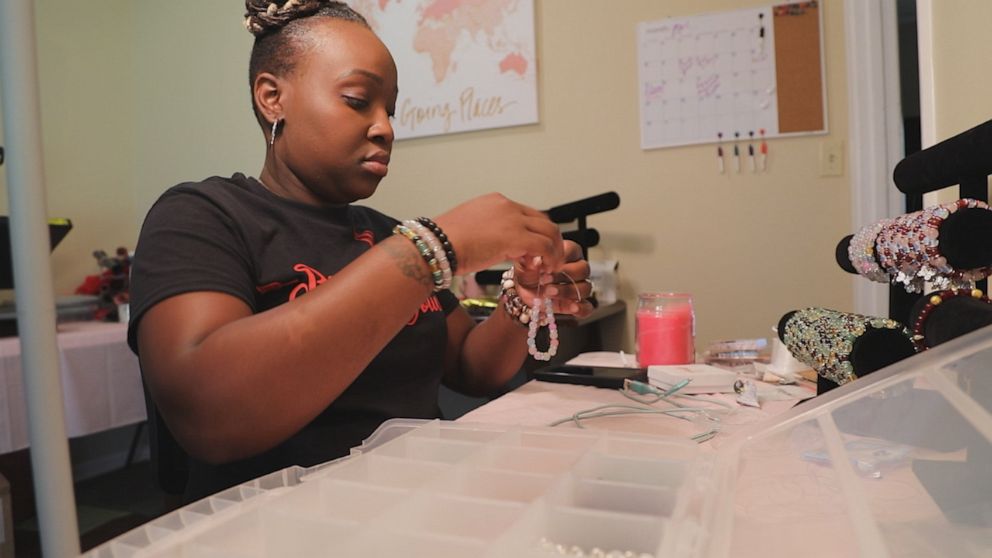
Weeks earlier, someone in her church had tested positive for COVID-19. As someone with asthma, Parks knew her underlying condition could worsen the effects of the virus So, she went to get tested.
A week passed before her results came back confirming that she was positive for COVID-19. As the days went on, her conditions worsened.
“It felt like I was using all the energy I had just to stay alive,” Parks told “Nightline” last month. “I felt my body shutting down.”
Now, more than a month later, she's recovered and finding her footing in a new normal. Parks is working from home on her business, Blessed Touch, where she makes jewelry to help support her family until they can return to their day-to-day.
While Parks empathizes with those who say they need to get back to work, for her and her family, it’s just too soon.
“So many people right here in the small city of Albany, Georgia, have lost their lives to this virus and I know it’s not over yet,” she said. “It’s still out and about, you don’t know who could have the virus.
"I’ve had friends say they’re excited to go get their nails done," Parks continued. "It’s impossible to practice social distancing in a nail shop. You’re right there in front of the person’s face getting your nails done. It was very devastating news for me. I really don’t think we’re ready to open back up the state of Georgia.”
Back in Atlanta, Steven Leslie says he understands why some are still concerned. His own daughter is a nurse working with COVID-19 patients, he said.
But on Monday, he was focused on his customers and getting back to business safely.
“I look at it from both sides,” Leslie said. “If they don't want to come out, they don't come out. ... I'm supporting my business, my livelihood and my staff. And I feel like, you know, we just have to move on and get rolling.”




